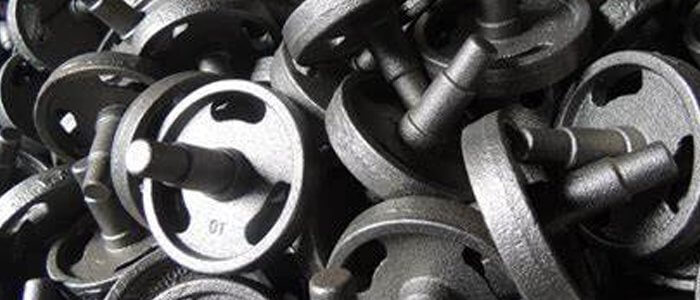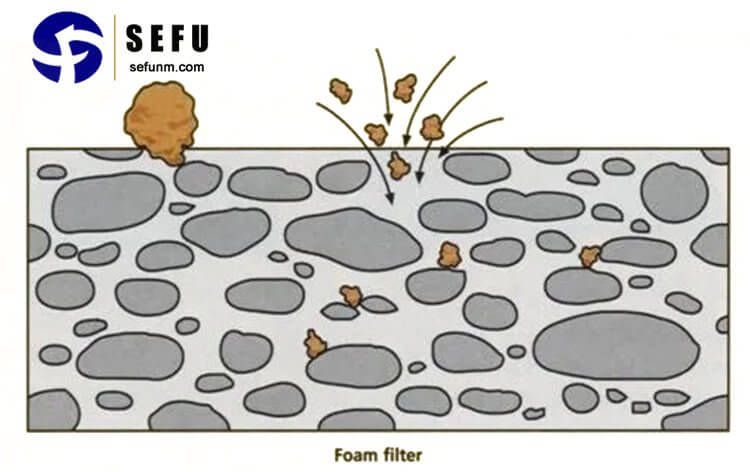Introduction
Grey iron casting, also known as gray iron casting or simply cast iron casting, is a centuries-old metallurgical process that has evolved with advancements in technology and materials. In recent years, Mexico has emerged as a significant player in the global foundry industry, particularly in the production of grey iron castings. This article delves into the world of grey iron casting in Mexico, highlighting its growth, innovations, and the role of ceramic foam filters in ensuring the quality of castings.
The Rise of Grey Iron Casting in Mexico
Mexico’s ascent in the grey iron casting industry can be attributed to various factors, including a skilled workforce, competitive labor costs, and strategic geographic proximity to key markets in North America. The country’s foundries have harnessed these advantages to produce a wide range of grey iron castings that find applications in diverse industries, such as automotive, agriculture, construction, and more.
One of the critical aspects of Mexico’s success in grey iron casting is its commitment to quality and innovation. To achieve this, many foundries in the country have adopted advanced casting techniques and quality control measures, including the use of ceramic foam filters.

The Role of Ceramic Foam Filters
Ceramic foam filters are integral components in the grey iron casting process, especially when it comes to achieving high-quality castings. These filters are made from a porous ceramic material with a unique structure that enables them to effectively remove impurities and inclusions from molten metal.
Here’s how ceramic foam filters work:
1. Filtration: When molten iron is poured into a mold, it can contain various impurities, such as oxides, slag, and non-metallic particles. Ceramic foam filters act as a barrier, capturing these impurities and preventing them from entering the mold cavity.
2. Improved Flow: Ceramic foam filters also facilitate smoother metal flow during the casting process, which minimizes turbulence and helps reduce the risk of defects like porosity and shrinkage.
3. Enhanced Quality: By removing impurities and promoting better metal flow, ceramic foam filters contribute significantly to the quality of grey iron castings. This is particularly crucial in industries where precision and reliability are paramount.

Innovations in Grey Iron Casting
Mexico’s foundries have not only adopted ceramic foam filters but have also embraced various innovations to enhance their casting processes. Some notable advancements include:
1. Computer-Aided Design (CAD): Foundries are increasingly using CAD software to design intricate casting molds, enabling the production of complex and precise components.
2. Simulation Tools: Casting simulation software allows foundries to predict and mitigate potential defects in castings before production begins, saving time and resources.
3. Sustainable Practices: Many Mexican foundries are incorporating eco-friendly practices, such as recycling and energy-efficient technologies, to reduce their environmental footprint.
The Future of Grey Iron Casting in Mexico
As Mexico continues to invest in technology and skilled labor, its grey iron casting industry is poised for further growth. The ability to produce high-quality castings, thanks in part to ceramic foam filters, positions Mexican foundries as reliable suppliers for both domestic and international markets.
Challenges and Opportunities
While Mexico’s grey iron casting industry has seen remarkable growth, it hasn’t been without its share of challenges. One of the persistent challenges faced by foundries is the fluctuation in raw material prices, especially iron and scrap metal. These price variations can impact production costs and profitability. However, proactive management and strategic sourcing have allowed Mexican foundries to navigate these challenges effectively.
Moreover, the industry’s growth has also led to increased competition both domestically and internationally. To stay ahead, foundries are constantly seeking new opportunities for expansion and diversification. This includes exploring emerging markets, collaborating with global partners, and expanding their product portfolios.
Quality Standards and Certifications
To meet the demands of an increasingly quality-conscious market, Mexican grey iron foundries are aligning with international quality standards and certifications. These certifications, such as ISO 9001, ISO/TS 16949, and ISO 14001 for environmental management, serve as markers of a foundry’s commitment to quality, consistency, and sustainability.
By adhering to these standards, Mexican foundries can assure customers of their ability to deliver castings that meet the strictest specifications. This is particularly crucial in industries like automotive manufacturing, where safety and precision are paramount.
Applications and End-Use Industries
The applications of grey iron castings are diverse and span a wide range of industries. In Mexico, some of the key sectors benefiting from the country’s robust grey iron casting capabilities include:
1. Automotive Industry: Grey iron castings are extensively used in the automotive sector for components such as engine blocks, cylinder heads, brake drums, and suspension parts.
2. Agriculture and Construction: Tractors, plows, and construction equipment rely on grey iron castings for their durability and strength.
3. Piping and Valves: The water and wastewater treatment industry often uses grey iron castings for pipes and valves due to their corrosion resistance and reliability.
4. Energy and Utilities: Grey iron castings play a vital role in energy generation and distribution, including in the production of wind turbine hubs and electrical infrastructure components.
Environmental Responsibility
As global awareness of environmental issues grows, Mexican foundries are also placing a greater emphasis on sustainable and responsible practices. This includes recycling and reusing materials, reducing energy consumption, and implementing emissions control technologies.
Ceramic foam filters, by helping to produce cleaner and higher-quality castings, contribute to these sustainability efforts. Fewer defects and rejections mean less material waste and energy consumption, aligning with the broader goals of reducing the industry’s environmental impact.
Conclusion
Grey iron casting in Mexico has evolved into a dynamic and competitive industry, driven by a commitment to quality, innovation, and sustainability. The strategic use of ceramic foam filters, alongside advancements in technology and adherence to international standards, has elevated Mexican foundries to a global stage.
As the demand for high-quality castings continues to rise, Mexico’s grey iron casting industry is poised for continued growth and success. By addressing challenges, seizing opportunities, and prioritizing environmental responsibility, Mexican foundries are not only meeting the needs of their customers but also contributing to a more sustainable and resilient manufacturing sector.
In a world where precision, reliability, and environmental responsibility are of utmost importance, Mexico’s grey iron casting industry stands as a testament to the country’s dedication to excellence in manufacturing.


